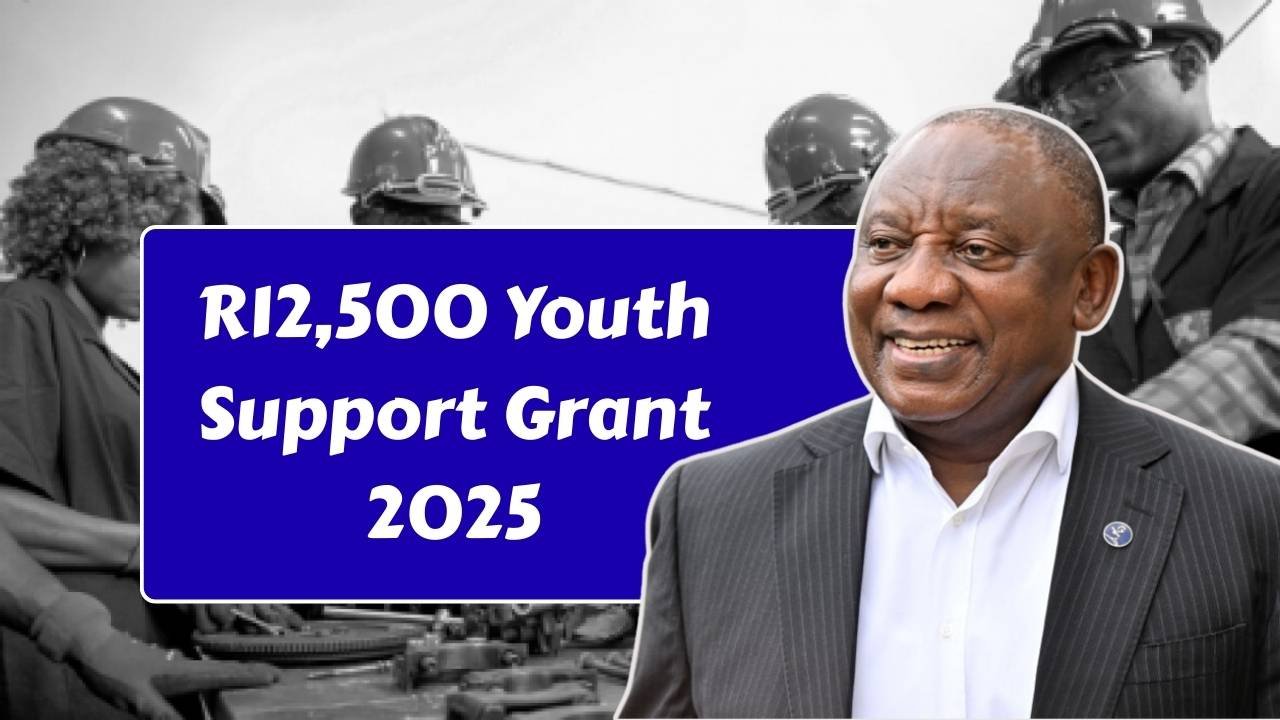Join on WhatsApp
Get the latest updates directly on WhatsApp – motivation, news & more!
South Africa continues to face high youth unemployment and limited opportunities for young people entering the workforce. Against this backdrop, the idea of a Youth Support Grant worth R12,500 has attracted widespread attention. In 2025, thousands of young South Africans are searching online and on social media for updates about whether such a grant exists, who qualifies for it, and how applications can be made.
While many have encountered messages claiming that a new R12,500 grant has been introduced, it is important to separate fact from fiction. This article explores the latest updates surrounding the Youth Support Grant, the real programmes currently available to young people, the requirements for genuine assistance, and how one can safely apply for government support without falling for scams.
The Origin of the R12,500 Youth Grant Claims
In early 2025, posts began circulating on social media platforms such as Facebook, WhatsApp, and TikTok. These posts promised that unemployed young people aged between 18 and 35 could receive a once-off payment of R12,500 from government. The messages often included links to suspicious websites or instructions to provide personal details such as ID numbers and banking information.
The reason these claims spread so quickly is clear. Young South Africans are struggling with high living costs, limited job opportunities, and the challenge of pursuing education or entrepreneurship without financial support. A promise of R12,500 in cash would be life-changing for many, making it easy for misinformation to gain traction.
Government Response and Clarification
The South African Social Security Agency (SASSA) and the National Youth Development Agency (NYDA) responded swiftly to these viral claims. Both organisations confirmed that there is no official R12,500 Youth Support Grant in 2025. They warned that these posts are hoaxes designed to trick desperate job-seekers into handing over their personal information.
SASSA has advised the public to only trust announcements made through its verified website, official press releases, or recognised communication channels. Similarly, NYDA clarified that it does not offer cash grants of this nature. Instead, it focuses on development programmes, entrepreneurial support, and skills training to help young people become self-reliant.
What Support Is Actually Available for Young People
Although the R12,500 Youth Support Grant is not real, there are genuine forms of assistance that young South Africans can access in 2025. These include:
- The Social Relief of Distress (SRD) grant, which provides monthly support for unemployed individuals who meet specific criteria.
- Skills development programmes run by the NYDA, offering training in entrepreneurship, digital skills, and vocational education.
- Business funding opportunities for youth-owned enterprises, often in partnership with government departments and private sector initiatives.
- Local outreach programmes that help young people in rural and underserved areas apply for social grants or access employment services.
These programmes may not promise a once-off lump sum of R12,500, but they provide practical support aimed at long-term empowerment rather than short-term relief.
Requirements for Genuine Government Support
If you are considering applying for a social grant or youth development programme in 2025, it is important to understand the requirements. While each programme has its own eligibility rules, some common conditions apply:
- Applicants must be South African citizens, permanent residents, or refugees with valid documentation.
- You need to provide a valid South African ID or Smart ID card when applying.
- Applicants must meet the financial means test for grants such as the SRD, which ensures that support goes to those who genuinely need it.
- For youth development programmes, applicants often need to fall within the age bracket of 18 to 35.
- Some opportunities, particularly business funding, may require a clear proposal or proof of an existing business idea.
Meeting these requirements is crucial, as incomplete or fraudulent applications can result in delays or disqualification.
Safe Application Process
To apply for genuine support, young people should follow safe and verified processes. For SASSA grants, applications can be made through the official SASSA website, at SASSA offices, or during outreach programmes in local communities. For NYDA opportunities, applications should be submitted through the NYDA website or regional offices.
Never apply for grants or funding through unverified links shared on WhatsApp or social media. These are often scams designed to collect your personal data or even trick you into paying fraudulent “registration fees.” Official programmes never ask for upfront payment.
How to Protect Yourself from Scams
The rise of fake grant promises shows how important it is to stay vigilant online. Here are some practical tips to protect yourself:
- Always verify information on government websites before acting.
- Be cautious of messages that create urgency or pressure, such as “apply now before the deadline.”
- Do not share personal or banking information with unverified individuals or platforms.
- Report suspicious posts to social media platforms and alert friends and family so that fewer people fall victim to misinformation.
By staying alert, young people can avoid unnecessary disappointment and protect themselves from exploitation.
Looking Ahead: The Future of Youth Support in South Africa
While the R12,500 Youth Support Grant does not exist, the conversation it has sparked highlights the urgent need for stronger youth empowerment measures. High youth unemployment remains one of South Africa’s biggest challenges. Government agencies, the private sector, and civil society organisations must continue working together to create sustainable opportunities for young people.
Investment in education, entrepreneurship, and innovation will be key. Beyond grants and once-off financial support, young South Africans need pathways to long-term employment and self-sufficiency. If anything, the viral spread of the R12,500 grant rumour is a reminder of the depth of demand for such opportunities.
Conclusion
The so-called South Africa R12,500 Youth Support Grant of 2025 is not real, despite its popularity on social media. SASSA and NYDA have both confirmed that it is a hoax. However, this does not mean there is no support available for young people. Genuine programmes such as the SRD grant, skills training, and entrepreneurial funding continue to provide meaningful assistance.
Young South Africans are encouraged to focus on verified opportunities, apply through official channels, and remain cautious of scams. By doing so, they can access real support while protecting themselves from fraudulent schemes. The hope for the future lies not in fake promises but in sustainable, credible pathways that empower the country’s youth to thrive.


